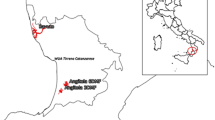Abstract
Multiple stresses are putting great pressure on water resources systems. Population growth, climate change, prosperity, energy production, food crisis, and water governance are among the factors straining water resources. Decision makers from rich to poor countries and from commercial to non-governmental organisations are struggling to devise schemes to adapt to these stressed water conditions. Better efficiency for water resources systems, and particularly irrigation systems, is recommended as one of the most important responses to climate change, unsustainable development, and water shortage. However, using certain efficiencies such as Classical Efficiency caused systems not to perform according to decision makers’ objectives. Effective Efficiency is a robust composite indicator that includes in its formulation both a flow weight, taking into account the leaching fraction, and reuse of return flows. Classical Efficiency is defined as the percentage of the diversion consumed beneficially, such as by crop evapotranspiration. Effective Efficiency, on the other hand, is defined as the ratio of beneficial consumptive use to total consumption, expressed as a percentage. In this paper, a normalised and non-dimensional form of Effective Efficiency is developed and necessary constraints for its successful application are explained. These constraints express water balance, flow weights and their thresholds, water reuse, and total consumptive use. Basic guidelines are proposed for better decision making in determining possible interventions for improving Effective Efficiency. This is done by analysing its domain through analytical and graphical methods. Three real cases are considered, namely, Imperial Irrigation District and Grand Valley irrigation systems in the United States and Nile Valley in upper Egypt. Three-dimensional sensitivity analysis is performed on Effective Efficiency and its variables using the three cases. This leads to an examination of the validity of the analysis and to suggestions for better intervention options. Meanwhile, it is also shown why Classical Efficiency should be used with care.
Similar content being viewed by others
References
Allen, R.G., Clemmens, A.J., and Willardson, L.S., Agro-Hydrology and Irrigation Efficiency, ICID Working Group, 2005, http://www.groups.yahoo.com/group/winrockwater, accessed July 2006.
Ayers, R.S. and Westcot, D.W., Water Quality for Agriculture, Rome: FAO Irrigation and Drainage, 1985, no. 29.
Browne, L.R., Outgrowing the Earth: the Food Security Challenge in an Era of Falling Water Tables and Rising Temperatures, London: W.W. Norton and Company, Earthscan, 2005.
Bur, C.M., Clemmens, A.J., Strelkof, T.S., et al., Irrigation Performance Measures: Efficiency and Uniformity II, J. Irrigation and Drainage Engineering, 1997, vol. 6, no. 123, pp. 423–442.
de Neufville, R. Applied Systems Analysis: Engineering Planning and Technology Management, N.Y.: McGraw Hill, 1990.
EEA. EEA multilingual environmental glossary, accessed on 13 of May 2009, http://glossary.eea.europa.eu/terminology/concept_html?term=consumptive use (of water).
Haie, N. and Keller A.A., Effective Efficiency As a Tool for Sustainable Water Resources Management II, JAWRA, 2008, vol. 4, no. 44. pp. 961–968.
Haie, N., Pereira, R., and Machado, G., Irrigation Water Use and its Effective Efficiency in Portugal, XIIIth World Water Congress, Montpellier, 2008.
IPCC. Climate Change 2007: Impacts, Adaptation and Vulnerability. Contribution of Working Group II to the Fourth Assessment Report of the Intergovernmental Panel on Climate Change, Parry, M.L., Canziani, O.F., Palutikof, J.P., van der Linden, P.J., and Hanson, C.E., Eds., Cambridge: Cambridge University Press, 2007.
IPTRID. Towards Integrated Planning of Irrigation and Drainage in Egypt. Rapid Assessment Study in Support of the Integrated Irrigation Improvement and Management Project (IIIMP), Rome: FAO, 2005, Final report.
Ismail, S.M., Ozawa, K., and Khondaker, N.A., Influence of Single and Multiple Water Application Timings on Yield and Water Use Efficiency in Tomato (var. First power), Agricultural Water Management, Elsevier, 2008, vol. 2, no. 95, pp. 116–122.
Israelsen, O.W., Irrigation Principles and Practices, N.Y.: John Wiley and Sons, 1932.
Kelle, A.A. and Keller, J., Effective Efficiency: A Water Use Efficiency Concept for Allocating Freshwater Resources II, Winrock International Center for Economic Policy Studies, 1995, Discussion Paper 22.
Mathworks. MatLab. Version 7, 2004, http://www.mathworks.com.
Seckler, D., Molden, D., and Sakthivadivel, R., The Concept of Efficiency in Water-Resources Management and Policy, in Water Productivity in Agriculture: Limits and Opportunities for Improvement, Kijne, J.W., Barker, R., and Molden, D., Eds., Wallingford: CABI Publishing and International Water Management Institute, 2003.
Sutcliffe, J.V., Hydrology: A Question of Balance. IAHS, 2004, Special Publication 7.
UN-WWAP, UN World Water Development Report 2, Paris; N.Y.; Oxford: UNESCO and Berghahn Books, 2006.
Ward, F.A. and Pulido-Velazquezb, M., Water Conservation in Irrigation Can Increase Water Use II, PNAS, 2008, vol. 47, no. 105, pp. 18215–18220.
Wichelns, D., An Economic Perspective on the Potential Gains from Improvements in Irrigation Water Management II, Agricultural Water Management, Elsevier, 2002, vol. 3, no. 52, p. 233D248.
Willardson, L.S., Allen, R.G., and Frederiksen, H.D., Elimination of Irrigation Efficiencies, 13th Technical Conference, Denver; Colorado: USCID, 1994.
Author information
Authors and Affiliations
Additional information
The article is published in the original.
Rights and permissions
About this article
Cite this article
Haie, N., Pereira, R.M., Machado, G.J. et al. Analysis of Effective Efficiency in decision making for irrigation interventions. Water Resour 39, 700–707 (2012). https://doi.org/10.1134/S0097807812060097
Received:
Published:
Issue Date:
DOI: https://doi.org/10.1134/S0097807812060097




